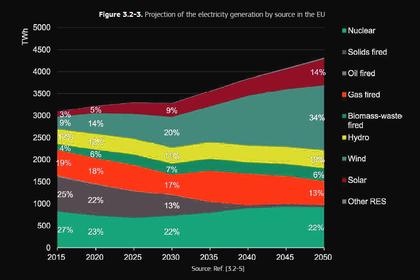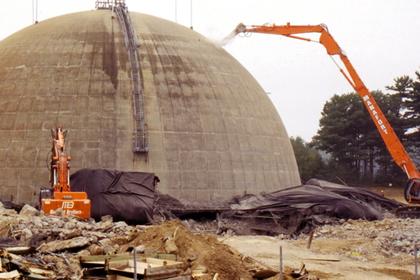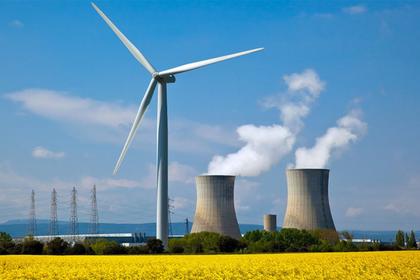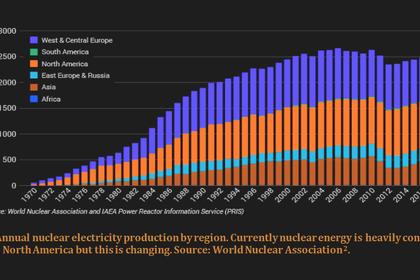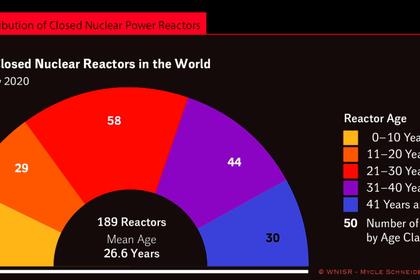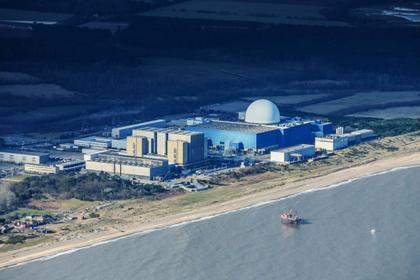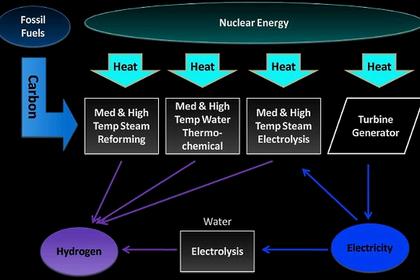
NUCLEAR WITHOUT CARBON
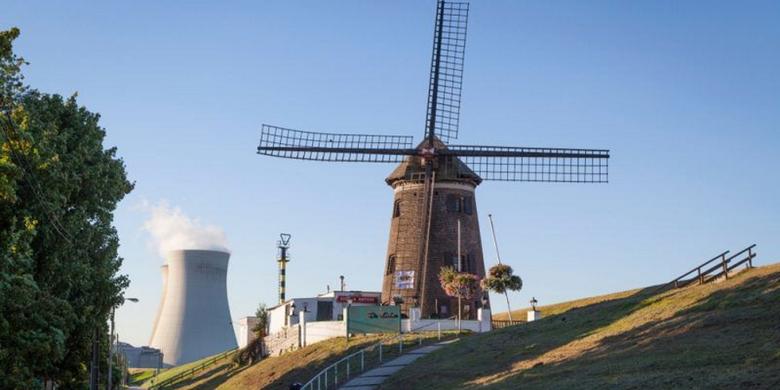
BLOOMBERG - 30.03.2021 - Duke Energy, one of the biggest U.S. power companies, isn’t going to reach its carbon-cutting goals without the help of a controversial source: nuclear power.
That’s according to Chief Executive Officer Lynn Good, who spoke Tuesday at panel called the Future of Energy. Nuclear power is relatively expensive and some environmental groups worry about accidents and the storing of spent fuel, which is dangerous. Still, it’s the only source of carbon-free power that can run around the clock.
“The safety record here in the U.S. is extraordinarily strong,” Good said, referring to nuclear power. “Frankly, I don’t see a way for us to reach our carbon goals without nuclear being part of the equation.”
Duke has set targets of halving its carbon emissions by 2030 and reaching net-zero carbon emissions by 2050. In keeping with those, the company needs to build about 1,500 megawatts of renewable energy generation every year for the next 30 years, Good said. By comparison, the company has built about 3,000 megawatts of renewable power in the past four years.
The energy giant gets about a third of its total power generation from nuclear plants, and doesn’t want to lose any capacity. The company has no plans to build new nuclear power but is seeking to renew the licenses for its 11 nuclear reactors in North and South Carolina so they can run for an additional 20 years.
Nuclear power provided about 20% of all U.S. electricity last year and 52% of its carbon-free power, according the the U.S. Energy Department. There’s only one nuclear plant currently under construction in the U.S.
-----
Earlier:
